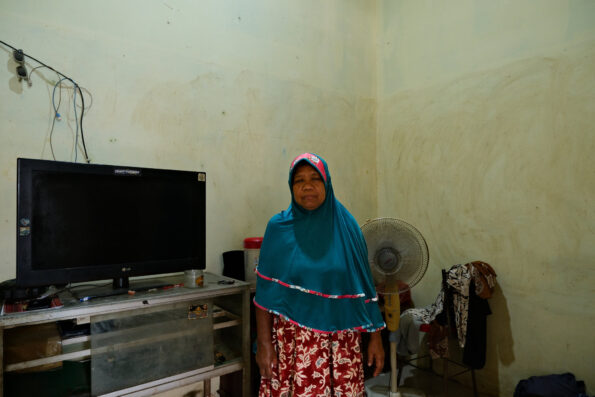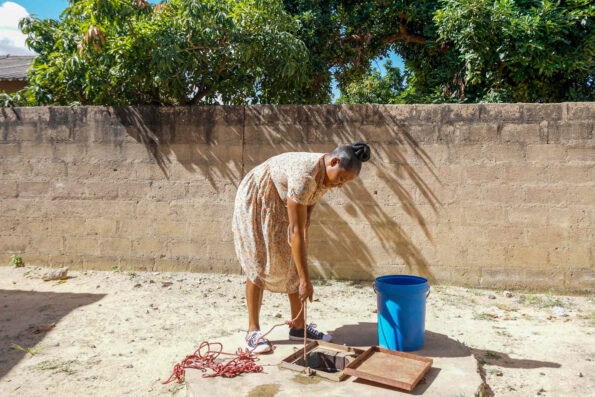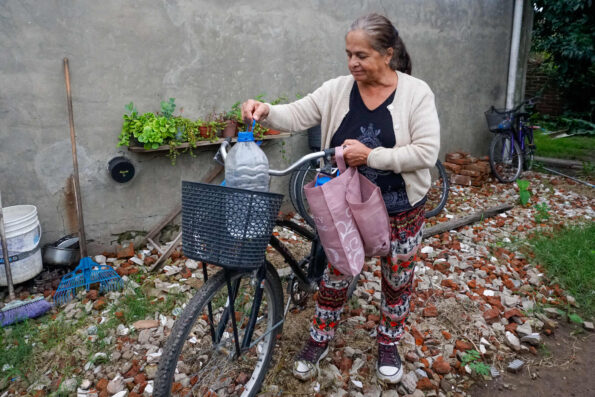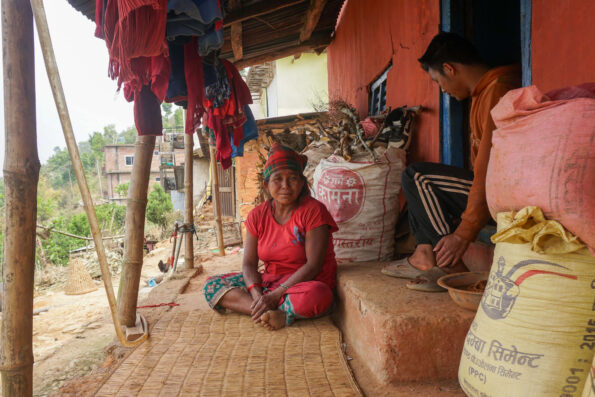
Lucila Pellettieri, GPJ Argentina
BUENOS AIRES, ARGENTINA – It’s summer in this capital city, and with the summer heat comes power outages.
High temperatures and high energy consumption has caused Edesur, the electricity company that supplies power to the south of Buenos Aires city and in 12 districts of the Buenos Aires province, to register record-breaking consumption levels for the company in Dec. 2015.
According to Edesur, at least 29,096 people were affected by service issues on Jan. 25. And 17,643 clients of Edenor, the electrical company that supplies energy to northwestern zone of the greater Buenos Aires metropolitan area and the northern part of the city of Buenos Aires were affected that same day, the company reports.
Residents and business owners told GPJ how they feel about the problem. Here are excerpts from those interviews:



“It’s the second time that our power goes out this month. We had an outage last week, and today it went out again. Luckily, since our ovens are gas, we can continue working. But there are some pastries, like those with pastry cream that we can’t make, because the pastry cream needs to be in the refrigerator no matter what. We can’t use the air conditioner or the fan. We die of heat in the kitchen. In my house, the same, we use candles and we don’t buy anything that goes in the refrigerator because we know that it will get ruined.” — Yanina Ponce, 28, Bakery worker



“It’s already the eighth time that our power goes out so far this summer. Me without electricity, I cannot work. All of the medications are sold through a computer system.“This generator is the second one that I buy for the pharmacy. I decided to buy it when I took account of everything that I would lose each time the power went out. If the refrigerators stop working, everything that is vaccines, insulin, and ophthalmological products lose the cold chain. And if I have to throw all of that, I lose 30,000 pesos ($2,089) in merchandise in just one day without power.” — Fernando Costa, 63, Pharmacist (right in the photo)



“When the power goes out, we cry. We don’t have a cold storage room. The refrigerators can keep the ice cream cold for seven hours. After, if we refill them with dry ice, they can last up to one day. If the outage lasts two days, by the second we lose the day’s work and all of the ice cream that was left. This year we prayed that the power doesn’t go out. I work with my sons. I’m a widow, and we live from this.” — Yolanda Román, 60, Owner of an artisan ice cream shop



“The power went out for me last year. The first two days, I was going up and going down seven floors to go out to the street. Then, thanks to everyone in the building, we presented complaints to the company. They put a generator for us, but it was worse. With the generator, my computer, the refrigerator and the air conditioner burned down. Just now, after six months of complaints, they paid me for a part of the computer and refrigerator repair. I didn’t get to cook all the food, and I had to throw away the majority because it got ruined.” — Adela Spallia, 77, Retired



“Here, unfortunately this will always happen. I will turn 64 years old, and this comes from almost 50 years ago, not just for the power outages, but also for the indispensable things – the electricity, the gas – they are things that no one takes responsibility for. If it goes out here, I close the business and I go home. But for many people, it really harms them. Their merchandise rots, and no one pays them for it.” — Oscar Martinez, 63, Flower vendor



“Yesterday the power was cut, and a team appeared to fix the electricity. I rushed them, but it’s not the guys’ fault. It’s a team for the entire neighborhood, and that can’t be. The guys tell me that they don’t have maintenance, that they send them to fix in the day, but they are few and they only patch up. Like a moron, I pay the electricity bill every month.” — Daniel Alberto Diaz, 39, Food vendor



“I always pay the electricity bill on time, and they put excuses that there was an explosion and that’s why there is no power. But the reality is that they don’t do the maintenance of the power plant.” — Josefa Abreum, 56, Storekeeper
Natalia Aldana, GPJ, translated these interviews from Spanish.







